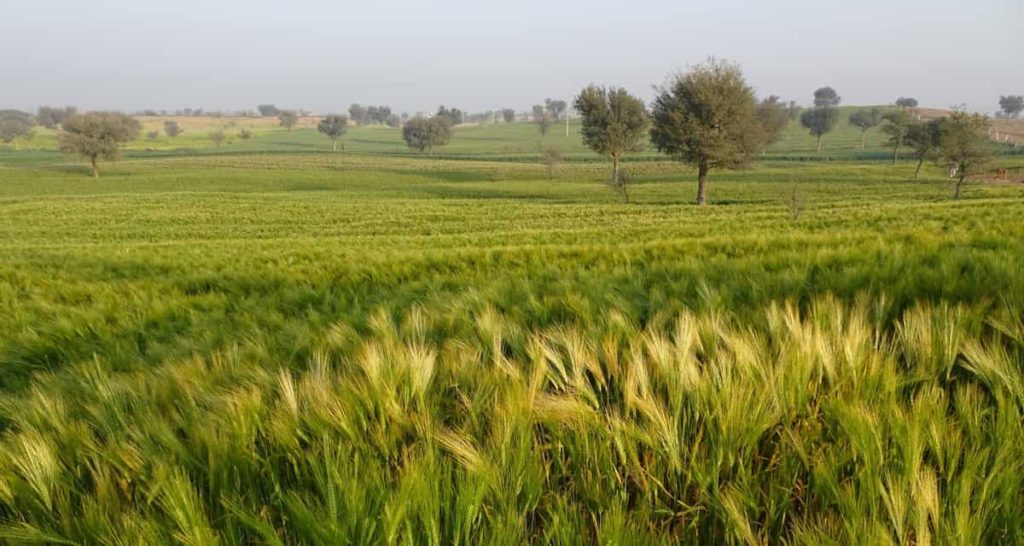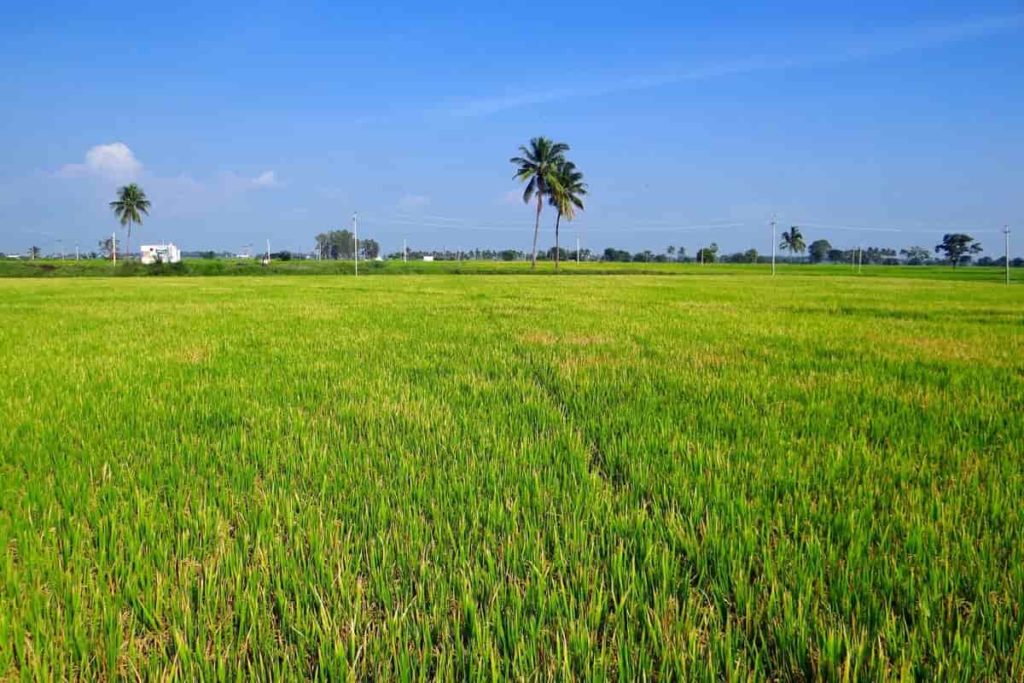Introduction to how to buy agriculture land in Punjab: Punjab’s agriculture is very popular all over India. Punjab is famous for its agricultural activities and tree planting. Agricultural activities in Punjab occupy a lot of lands as its land is suitable for cultivation. Punjab, the food basket of India, is an agricultural state. Punjab is one of the proudest states in India for its outstanding achievements in agricultural development.

Agriculture is a way of life. More than 65% of its population is directly dependent on agriculture. It has shaped the thinking, attitudes, culture, and economic life of our people and will continue to control all strategies for planning the socio-economic development of the state in the future. Agricultural production can only be increased to some extent by increasing crop intensity, crop rotation, use of high-yielding varieties, adherence to good cultivation practices, and availability of improved post-harvest technology, etc.
Rapid agricultural development, with easy access to credit for landlords, led to a growing credit crunch. Took advantage of the law to pardon. This led to a situation where land was rapidly transferred to absentee moneylenders who had little contact with the countryside where the land was located. The colonial government recognized it as a potential threat to the stability of the province, and there was a rift in the government between patwaris who supported intervention to ensure governance and those who dealt with private property. Buyers of property in Punjab should pay stamp duty and registration charges to the government to complete the process of registration of property.
Guide on how to buy agriculture land in Punjab, stamp duty & registration fee, cost, documents required, how to lease, ways to make money

Agriculture land in Punjab
In general, the total geographical area of Punjab is approximately 5.036 million hectares of land. The cultivable area is 4.20 million hectares (83.4% of the total geographical area) and the net sown area is 4.023 million hectares (95.7% of cultivable land). The area under net irrigation is 4.019 million hectares.
Agriculture in Punjab is very rich in terms of land, capital, energy, nutrients, agricultural inputs, and water. Land use and crop yields depend more on climate than any other factor of production. The effects of weather on agriculture can be far-reaching, affecting crop plants from germination to maturity. The effects of the weather continue to affect agricultural production in the markets and during storage. The main factors that make up the environment are temperature, humidity/rain, solar radiation, and wind. Plants perform best in some of these interrelated conditions, and some extremes cause significant damage to plants.
Punjab’s climate is mainly affected by the Himalayas in the north and the ‘Thar’ desert of Rajasthan in the south and southwest. Land ceiling laws allow individual ownership of 17.5 acres of irrigated land and 32 acres of irrigated or ‘rainfed’ land. Owners of excess holdings have sought ways to circumvent the law to maintain large holdings: by transferring land to relatives, servants, etc. In many cases, the acquisition of state-owned land was never granted under maximum law. There are also instances where more land has been returned to the owners with the connivance of the authorities.
A recent circular issued by the Revenue Department, which threatened to review the issues of excess land allowed, caused a stir in enforcing the ceiling rules and it had to be taken back within days. The government should at least review the land ceiling laws to make it more independent, and if that is not done, then land restrictions should be lifted. Over time, this will stabilize the land, and there will be a shift of labor to areas other than agriculture. In general, the less developed a country is, the more percentage of its population will be in agriculture. In Punjab, about 40% of the population is engaged in agriculture whereas for India it is 48.8%.
Stamp duty and registration fee for buying agricultural land in Punjab
Stamp duty and registration fees are levied on the registration of a document. Collection of stamp duty on various types of equipment such as transport, exchange, mortgage, and lease, etc., is governed by the Indian Stamp Act, 1899 (Stamp Act) and the Rules made thereunder. Duty payments are made by instrument executors either through affected stamps or by affixing fair value stamps (non-judicial). The collection of the registration fee on the devices offered for registration is governed by the Indian Registration Act, 1908 (Registration Act) and the Rules made thereunder.
Under the Act, the state government has the power to reduce or remit the collection of stamp duty and/or registration fees as possible or in the past. The exemptions, remissions are given mainly for the betterment of persons belonging to scheduled castes and other economically weaker sections of the society, to benefit them from welfare schemes, to promote small-scale industries, to encourage cooperative movement. Development projects for incentives and other such small farmers and rural communities.
The Stamp Act provides that no duty shall be levied on any document by or in favor of or favor of the Government. Convention deeds of lands transferred to Punjab Housing and Development Board after acquisition through Land Acquisition Collectors (LAC) must be processed under the provisions of Stamp Act as in the case of the former Punjab Housing Development Board. Was in the case Stamp duty and registration charges are additional costs incurred on the purchase or transfer of a property.
The Punjab government has recently increased the stamp duty charges for properties located in urban areas by one percent. At present, the current rate of stamp duty in Punjab is 7%. From now on, revised rates will be levied on property registration/transfer of movable assets. Stamp Duty in Punjab is equal to 5% Considerable Cost + 1% SIC (Social Infrastructure Cess) + 1% Considerable Cost (PIDB)
If you want to buy property in Punjab, there are some state-specific details that you should be aware of. In addition to the cost of the property, other expenses such as registration fees and stamp duty need to be taken into consideration. After paying the property price to your seller, you must register your property and pay the stamp duty.
What is stamp duty? Stamp duty is a tax levied by the state government on property transfer transactions. It applies to all properties such as under construction or newly completed property, agricultural or non-agricultural land, commercial units, freehold or leasehold land, or residential house. Payment of stamp duty verifies your ownership and legalizes your property documents.
How to calculate stamp duty for buying agricultural land in Punjab?
In Punjab, stamp duty is calculated on the market value of your property. Officials use the ready reckoner to determine the value of the property. It is the standard value of a property that is managed by the Punjab Government. This serves as the limit below which property transactions are not permitted.
In case if you miss this: Who Can Buy Agricultural Land In The USA

This is the minimum amount of property notified by the government. To determine the value of a property for stamp duty, more than two values are considered. Along with the value of the property, there are many other factors such as the location of the property, the gender of the owner, the use of the property, the type of property, etc., that affect the amount of stamp duty applied to the property.
How to calculate stamp duty online in Punjab?
Stamp duty is levied on the market value (circle rate) or the property value, whichever is higher. The value of consideration is the amount involved in any purchase/sale transaction between two parties (buyer and seller). The rate of stamp duty levied for property registration varies from state to state. Using the Stamp Duty Calculator, a home buyer can calculate the stamp duty charges levied on property in different States and Union Territories (UTs) in India.
Cost of agricultural land in Punjab
The cost of agricultural land in Punjab is approximately 20 lakhs to 1 crore and it will change depending on several factors. Below mentioned factors can be divided into some categories;
- Accessibility and land use
- Physical attributes
- Location
- Price in surrounding and nearby area
- Market Value and property price
Some other factors also affecting the cost include proximity to other attractions or desired areas, scarcity, present, and future land use, access to economic activities, area amenities, type and proximity, zoning, future development potential. T land becomes an object of competition in the agricultural land market.
Is it worth buying agricultural land in India?
Investment in agricultural land is capital-intensive. Keep in mind that investors have a clear financial plan before investing in agricultural land. Like all assets, agriculture has stagnation and growth and decline periods. However, the overall trend is a steady increase in intermediate values. This is a good investment.
Certificates required to purchase agricultural land in Punjab
1. Convention deed or sale deed – Title Deed
Sale Deed document performed by the seller and the buyer. This transfers the title of the property to the buyer through the seller. The convention is the process of transferring property ownership from seller to buyer. Verify that the land belongs to the seller and that the only right to sell the land belongs to him and no one else. It is best to review the original letter with experts. Along with the title deed, the buyer can also ask the seller to look at the past deeds of the available land.
2. Encumbrance certificate
Before purchasing land it is important to verify that there are no legal obligations on the land. Check the Encumbrance Certificate (EC) issued by the Sub-Registrar’s Office where the deed is registered (in Punjab), stating that there is no legal liability for the said land and no complaint.
An Encumbrance Certificate means the charges or obligations imposed on a particular property, under which it is held as collateral for a debt of its owner which has not been paid to date. Certificate can be obtained on request in a prescribed form provided by the authorities from the concerned sub-register office. It usually takes 2 weeks to get the certificate in the normal course. Government officials and financial institutions such as banks demand a 13-year burden.
There will be a small fee to charge depending on the number of years. Arrangements are made to pay a “double fee” for immediate receipt in an emergency. This certificate will show the authenticity of the owner’s title. In the general course, this certificate will be a full-proof document, but it may contain academic errors. Therefore, it is always advisable to personally inspect the property and verify that original title documents are available to the property owner.
3. Payment of stamp duty
Be sure to verify the title documents to check the payment of stamp duty. If the owner of the property has changed more than once, review all the documents for payment of stamp duty by the predecessor. Today, many states have amended the stamp law to allow the formation of a charge on property in the event of a reduction in stamp duty on any document relating to the property. Therefore, the current owner of the property is liable to pay less stamp duty and fines, if any, on the pre-registered documents.
In case if you miss this: How to Buy Agriculture Land in India & Who Can?

4. Title certificate
An advocate issues a title certificate after searching for the title of the property required for purchase. Property titles are usually searched for in the last 30 years. The developer should attach a copy of these reports to the intended buyer of the apartment in the “Agreement for Sale”. These documents will determine if the title to the property is clear, marketable, and free of burdens. This will specify whether there is an existing mortgage, litigation, condition, or claim, which is likely to damage the buyer’s title.
5. Check the property title
The property title forms the basis of any agreement. Verify seller title before purchasing a property. Records can be found in the Sub-Registrar’s office for documents that affect the property and can be registered. The report will show changes in the recorded property title owner and property title. If the land is agricultural, check the account, the account, and the title deed may be sought from the seller.
The assessment register ledger entry is called Khata and is a supporting document of the title. This is the entry of the current owner in the municipal / panchayat records relating to the property. This is required for loans, title opinions, and renaming of electricity meters, etc. The entry of the assessment register ledger is changed after the execution of the sale deed or after the inheritance of the property by will, gift, and distribution, etc.
6. Personal inspection of agricultural land
The buyer is responsible for verifying ownership, ownership, and ownership. An important precaution is to inspect the land under sale. The buyer will inquire from the neighbors about the ownership and possession of the property, disputes if any, the role of the seller, the mortgage on the property, and part of the property, etc. This is the highest. An important aspect of title validation, that it is best to have at least three people from the buyer. And they will interrogate different people in and around the property separately, such as local elders, old property owners/tenants, laborers, etc. In populated areas, it is easy to inspect the site and the building. It is easy to inquire in villages where people can recognize people by name.
7. Engage a competent lawyer
There are many rules involved in property transactions. It is therefore advisable to include a competent lawyer to investigate the title, ownership, ownership, and other aspects. The lawyer will be a partner and the scope of his / her work will include scrutiny of title, negotiation, drafting of contracts/sales methods, consideration of payments, registration of documents, mutations, etc.
8. Certified copies
When copies of documents are offered for viewing, the buyer will not only have to rely on them but may also apply for certified copies instead. Also, get certified copies of backup documents. Sale deed Copies are the Sub-Registrar office and given to anyone on request after paying a fixed fee.
If the power of attorney is given in the case of immovable property in Punjab today through the executive directorate, then the parties interested in obtaining a certified copy of it can be made eligible. ۔ The move is a progressive one as it will, to some extent, investigate fraud under the guise of a power of attorney as it is no longer a secret document.
What is the mutation of agricultural land in Punjab?
Following the mutation process, the new owner receives the title of property registered in his name in the Land Revenue Department and enables the government to collect the property tax. As far as transfer by sale, gift, mortgage, or exchange is concerned, it is important to state whether the share of the property has been transferred to the land and therefore the following guidelines should be followed in this regard;
Where the mutation fee is levied in respect of a holding whose revenue is fluctuating, the mutation fee should be calculated on the aggregate estimate of Kharif and Rabi season of the agricultural year. If, however, this is the current year and Rabi has not been assessed at the time of confirmation, then the fee should be calculated on the assessment of the previous year.
A mutation of land is a change of ownership when the land is sold or transferred from one person to another. The Punjab Government can collect the property tax from the legal owner. Changes in title ownership can be due to the death of the original landowner of ownership due to inheritance or succession.
Significance of property mutations
Property mutation is a mandatory process in all legal property transactions. By converting the land, the new owner obtains a revenue record in his name. In the event of a land dispute, the land record will be useful as a legal document.
Documents required for the mutation process
- Change in case of sale of property
- Relevant documents for the change of property need to be attached to the village office.
- Relevant documents need to be attached to the village office for mutating of property.
- Application for mutation
- Registered deeds with stamp affixed (both current and previous)
- Deed of sale
- Death certificate
- Affidavit on stamp paper of desired value
- Receipt of latest payment of property tax
- Ration card
- Aadhaar card
Can any company buy agricultural land in Punjab?
A private limited company can buy agricultural land in Punjab provided it is used for agricultural activities. Since its purpose is dairy farming which is an associated agricultural activity there should be no hindrance. It doesn’t matter if one of the shareholders is an NRI. Make such provisions to accommodate limited company or agricultural activities.
How to lease government land?
Leasing and buying of government land were not allowed to keep unorganized players out of the market. However, businesses can now apply for leasing of government land in special economic zones for commercial purposes. They can approach the Development Authority under the Centre’s Make in India scheme. For agricultural purposes, landowners can lease their property and legally register their contracts.
In case if you miss this: Future of Agriculture in India

Documents require;
- Request a letter on the company’s letterhead
- Detailed project report
- Copy of registered memorandum of association (if the company is privately limited) or registered partnership deed (if partnership firm)
- Certificate of shareholding
- Board resolution
- Block the proposed use of a plot
- Demand draft towards processing fees
Processing fee
Apply to the Authority with all relevant documents. Once approved, the applicant will be issued a letter to appear before the Land Allocation Committee. Foreign direct investment projects are considered on a priority basis and land allotment is given priority. Once the LAC approves the application, the authority issues an offer letter for a 25% payment within 15 days of the letter being issued. Following this payment, the Authority will issue an allotment letter with the plot number on which the applicant has to pay the remaining amount within 30 days of issuance of the letter.
In addition, for plots up to 10 acres, Width charges will have to be paid. While for plots between 10 and 25 acres, applicants get a 50% discount on-road charges. There are no road width charges for plots over 25 acres or for investments over Rs.100 crore. In cities where development agencies have not yet been established, applicants can apply to the Sub-Registrar’s Office after the same process.
Small farmer certificate for agriculture land in Punjab
Agriculture plays an indispensable role in our country. Fifty percent of the total population considers agriculture as a source of livelihood. Large sections of the farming community belong to the small and backward classes. But there is a slight difference between small farmers and ordinary farmers. Small farmers cultivate crops with an area of between 1 hectare and 2 hectares, whereas ordinary farmers cultivate crops with an area of up to 2.5 acres.
Benefits of small farmer certificate
A farmer can get the following benefits by having a certificate of the ordinary or small farmer;
- Farmers get a 100% subsidy for the installation of drip and sprinkler irrigation systems.
- Preference is given to women, listed castes, listed tribes, ex-servicemen, and various persons with disabilities.
Documents Required
Farmers should have the following documents to avail the benefits of this scheme.
- Firstly, the application form must be completed by the applicant.
- A copy of Patadar Passbook / Deed / 1B Extract / Land Registered Sale Deeds.
- Self-declaration made by the farmer.
Ways to make money on agricultural land in Punjab
The most common (and reasonably best) way to invest in farmland is to buy it directly. If you are physically engaged in farming, there are various ways you can benefit from it;
Buy and sell
As a limited resource, the supply of standard agricultural land is fixed. The only thing that fluctuates is the economic demand for these products that can be met through farming: mainly food. As the world’s population continues to grow, so does the demand for basic food items. In this way, investors can buy, wait and sell when prices rise in the future.
Buy and lease
In addition to providing financial value to an investor, buying and then leasing land to a farmer (or professional farming company) can help the local economy by increasing access to locally grown agricultural produce. With this option, a person can collect annual rental income or enter into a profit-sharing agreement.
Yield (selling directly harvested produce)
When it comes to buying and leasing, you can make money from harvested crops. With the use of the latest technology and good farm management: fertile agricultural land soon pays off for itself with a positive return on investment. This option involves hiring and paying a farmer to manage your farmland, while you make money by selling produce. One can enter into long-term agreements with buyers who agree to purchase the final product at fixed prices.
In case if you miss this: How to Start Poultry Farming in Haryana

Increasing the value of farmland
Like other forms of real estate, investors can always improve and increase the value of their property. For example, one can invest more in cash crops (Coffee, Tea, Cotton, Cocoa, etc.) than in low-cost food crops (Corn, Cassava, etc.). Or one can go for organic farming.
In addition, anyone can add value by improving any building/infrastructure on the said land. Any of these changes will lead to higher prices and higher profits whenever an investor decides to sell. There are other ways to generate income that have nothing to do with raising crops or raising animals. For example, water rights can be sold to a farm that has a large water supply. Advertising billboards or mobile network communication towers on farmland properties near strategic locations such as major roads can also earn money.
Final Thoughts
Investing in agriculture can be a very lucrative way of acquiring agriculture. However, you need to;
- Know what you are investing in.
- Be able to get the right farming.
- Be able to get relatively cheap land.
- Economical Aquaculture: A Guide to Low-Budget Fish Farming
- 15 Common Planting Errors That Can Doom Your Fruit Trees
- How to Make Houseplants Bushy: Effective Tips and Ideas
- Innovative Strategies for Boosting Coconut Pollination and Yield
- Pollination Strategies for Maximum Pumpkin Yield
- The Complete Guide to Chicken Fattening: Strategies for Maximum Growth
- Natural Solutions for Tulip Problems: 100% Effective Remedies for Leaf and Bulb-Related Issues
- Revolutionizing Citrus Preservation: Towards a Healthier, Greener Future
- Natural Solutions for Peony Leaf and Flower Problems: 100% Effective Remedies
- Maximizing Profits with Avocado Contract Farming in India: A Comprehensive Guide
- Natural Solutions for Hydrangea Problems: 100% Effective Remedies for Leaf and Flowers
- The Ultimate Guide to Choosing the Perfect Foliage Friend: Bringing Life Indoors
- From Sunlight to Sustainability: 15 Ways to Use Solar Technology in Agriculture
- The Ultimate Guide to Dong Tao Chicken: Exploring from History to Raising
- The Eco-Friendly Makeover: How to Convert Your Unused Swimming Pool into a Fish Pond
- Mastering the Art of Delaware Chicken Farming: Essentials for Healthy Backyard Flocks
- 20 Best Homemade Fertilizers for Money Plant: DIY Recipes and Application Methods
- How to Craft a Comprehensive Free-Range Chicken Farming Business Plan
- Brighten Your Flock: Raising Easter Egger Chickens for Beauty and Bounty
- How to Optimize Your Poultry Egg Farm Business Plan with These Strategies
- Subsidy for Spirulina Cultivation: How Indian Government Schemes Encouraging Spirulina Farmers
- Ultimate Guide to Raising Dominique Chickens: Breeding, Feeding, Egg-Production, and Care
- Mastering the Art of Raising Jersey Giant Chickens: Care, Feeding, and More
- Ultimate Guide to Raising Legbar Chickens: Breeding, Farming Practices, Diet, Egg-Production
- How to Raise Welsummer Chickens: A Comprehensive Guide for Beginners
- How to Protect Indoor Plants in Winter: A Comprehensive Guide
- Ultimate Guide to Grow Bag Gardening: Tips, Tricks, and Planting Ideas for Urban Gardeners
- Guide to Lotus Cultivation: How to Propagate, Plant, Grow, Care, Cost, and Profit
- Agriculture Drone Subsidy Scheme: Government Kisan Subsidy, License, and How to Apply Online
- Ultimate Guide to Raising Araucana Chickens: Breed Profile, Farming Economics, Diet, and Care
- Bringing Hydroponics to Classroom: Importance, Benefits of Learning for School Students
- Ultimate Guide to Raising Polish Chickens: Breed Profile, Farming Economics, Diet, and Care
- Ultimate Guide to Raising Australorp Chickens: Profile, Farming Economics, Egg Production, Diet, and Care
- Silkie Chicken Farming: Raising Practices, Varieties, Egg Production, Diet, and Care
- Sussex Chicken Farming: Raising Practices, Varieties, Egg Production, Diet and Care
- Homemade Feed Formulations for Livestock: Discover Cost-effective Starter to Finisher Feed Recipes